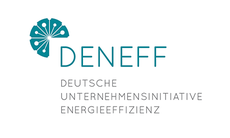Search eceee proceedings
RDI roadmaps on industrial decarbonization
Panel: 1. Policies and programmes to drive transformation
Authors:
Simon Moser, Energy Institute at the Johannes Kepler University Linz, Austria
Horst Steinmüller, Energieinstitut an der Johannes Kepler Universität Linz, Austria
Abstract
Industry is responsible for a significant share of energy consumption in Austria. It can be derived from the Austrian energy balance that the producing sector is responsible for 29% of the national final energy consumption. The energy-intensive industries of Austria are to be found in the fields Iron and Steel, Non-ferrous metals, Pulp and paper, Chemical and petrochemical industries, Stones / Soils / Glass industries (including cement). This listing is coherent with the list of the unification of the German energy-intensive industry. The energy balance shows that these energy-intensive industries account for about two-thirds of the energy demand of the production sector and one-fifth of the total national energy demand.
The Austrian energy-intensive industry is one of the most energy-efficient in the world and has already invested in a variety of mitigating measures in the past. This is probably true for many other European industries. Further efficiency measures are a major challenge for companies, requiring high investments facing low payback times.
However, the current framework and policy conditions clearly require an ambitious increase in energy efficiency in the long term (2050). Thus, a rapidly advancing research and technology development is to be supported in order to generate economically justifiable energy efficiency potential. The questions raised by the conducted R&D roadmaps are: What are the - from the perspective of industry - pending / expected research needs for the increase in energy efficiency industry? And what are the pending / expected research needs for the integration of industrial processes with energy supply from fluctuating renewables?
In order to find out, we develop an R&D roadmap indicating the most promising fields of research for energy efficiency. In the workshops conducted, industry representatives define an ambitious vision for industries in 2050: Subject to the provision that "the framework conditions are right", their common vision foresees a high-efficient use of energy taking a holistic perspective. Given an attractiveness of the location for research and technological innovation, Austria (Europe) is a long-term secured industrial location. Based on a backcasting process, industrial stakeholders then defined necessary technologies and policies to reach this vision. Being very industry-specific, these generally include holistic approaches, e.g. exergetic, regional or life cycle issues.
Supplementary results: In the R&D roadmap on renewables in industry, we find similar optimism concerning the vision (subject to the provision that "the framework conditions are right") on the use of renewables in industrial processes (up to 100%). However, we also find that there are not enough electricity potentials in Austria to electrify the whole industry and supply the rest of the economy. Austria does not have enough electricity storage potentials to supply its own demand. The Austrian energy system needs synthetic gases for storage and back-up capacities. Concerning overlaps with the efficiency roadmap, we find that the ability of buildings to use low-temperature excess heat is more important than their efficiency (primary energy efficiency) (this does not imply that building end-use efficiency should not be increased!).
Downloads
Download this presentation as pdf: 1-055-18_Moser_pres.pdf















